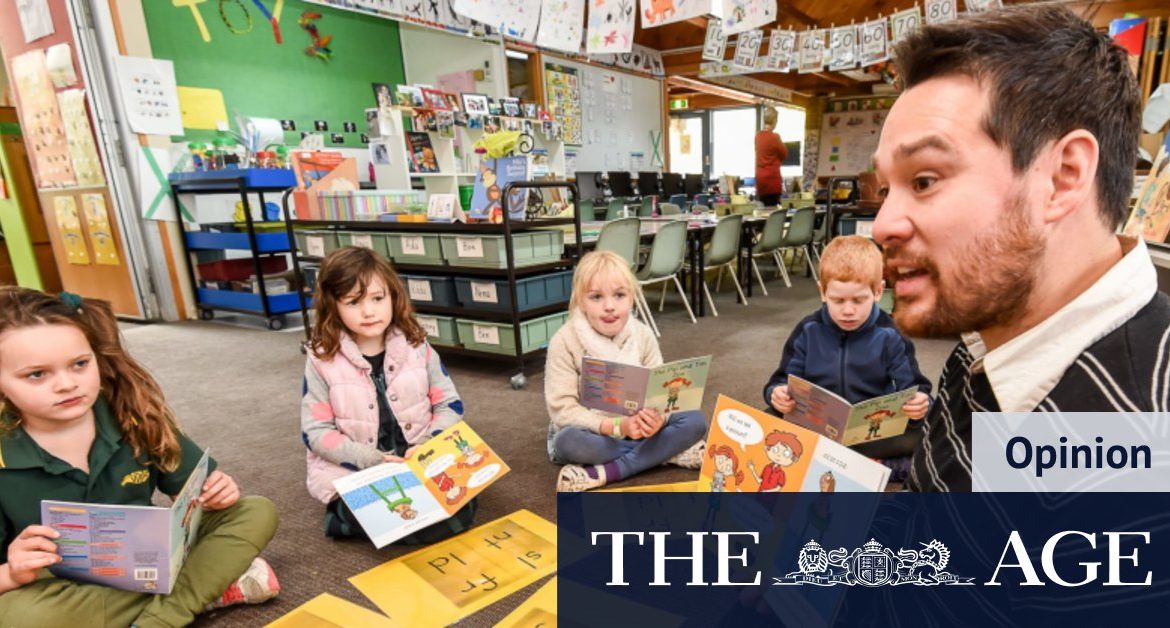Study after study highlights the ineffectiveness of whole-of-language programs such as Reading Recovery – which is why it is no longer supported by the NSW government.
This does not mean that phonics and authentic literature experiences are mutually exclusive. But it does mean they need to be sequential. Children won’t learn to read simply by being read to, or with only incidental teaching of letters and sounds. Phonics is the foundation upon which future literacy skills are built.
Children won’t learn to read simply by being read to.
It is a crying shame that parts of the education community are so blinded by ideology that they cannot bring themselves to accept the evidence in favour of phonics that is sitting in front of them. Most of our outstanding primary school teachers in NSW know full well the importance of phonics. Yet too many tell me they have not been provided with adequate training in their degrees to properly teach it.
Instead of getting involved in debates about discredited reading pedagogies, university education faculties should focus on giving teachers the tools that evidence tells us will make the biggest difference in the classroom. Vice-chancellors need to take a broom to these faculties and clear out the academics who reject evidence-based best practice. A faculty of medicine would not allow anti-vaxxers to teach medical students. Faculties of education should not allow phonics sceptics to teach primary teaching students.
For too long, governments have been reluctant to pick a side in the reading wars – intimidated by the knee-jerk hysteria that will no doubt arise from the anti-phonics brigade. No longer. From next year, phonics will be compulsory for every year 1 class across NSW. Every single year 1 pupil in every single public school must undergo a phonics screening check with their teacher.
Because parents deserve the best for their children, from 2022 each primary school will also have a phonics target that they will be expected to hit. This target will be a benchmark set against results from the phonics screening check.
The phonics screening check is incredibly easy to administer. Pupils will sit with their teacher and will be asked to read 40 words aloud. These words include 20 real words and 20 non-words. Non-words might seem like a strange approach, but these words are used to see if the student is able to use their knowledge of blending to read a word rather than their memory of having seen that word before. The results from the check will provide teachers with the data they need to provide targeted support to students who need it most.
Throughout this year, we have been trialling the phonics screening check in 521 schools. The feedback has been overwhelmingly positive. Indeed, 98 per cent of teachers surveyed reported they would be likely to apply learnings from using the check to their classroom practice.
Teachers will be provided with professional development and support to help them effectively use the screening check and the information it provides.
Loading
We are ambitious for our schools and have a responsibility to deliver the best education to our pupils in a way that we know to be most effective. NSW has been successful in responding to the COVID-19 pandemic because we have listened to and acted on expert advice. We must do the same when it comes to the teaching of reading.
I know that thousands of teachers across the state already know how best to teach our littlest learners to read. It is time that sceptics got on board and listened to those at the coal face who are teaching our kids. It is time to declare the reading wars over.
Sarah Mitchell is the NSW Minister for Education.
Sarah Mitchell is the NSW Minister for Education and Early Childhood Learning.
Most Viewed in National
Loading







